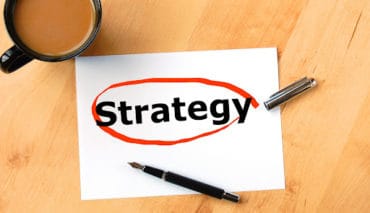The projects of an organization are undertaken with the motive of exploring new opportunities and untapped markets. Though, among these projects, there can be some that may turn out to be complex. In such instances, it becomes essential for product managers to give due importance and consideration to them promptly. Once you figure out certain hacks, you can also know what kind of product manager job specifications to provide to your area’s best product management recruitment agency.
What are the challenges of complex projects?
Complex projects come with challenges and difficulties that can be difficult to crack. Let’s check the everyday challenges of complex projects:
- In a complex project, you may find a multitude of stakeholders with their perspectives and desires. This can lead to hassles in balancing and a lot of constant project changes.
- The complexity of a project increases the risk of it falling over budget and behind schedule. Meeting project goals requires careful management of time and money restrictions and effective distribution of available resources.
- The high involvement of a lot of factors poses a number of risks to the projects. The success of a project hinges on the ability to anticipate and mitigate any potential problems.
Product Manager Jobs: Hacks To Easily Navigate Complex Projects
Complex projects can be a pain to manage. Hence, employing the best product management recruitment agency in any market can be the smartest decision to tackle them. Many of these hacks are basics that many fail to get right. Let’s check them out for more detail:
Be clear on what the vision is
For product managers to lead successful projects, their comprehension of big-picture goals is crucial. As a result, vital synching up with company objectives becomes essential for success. By establishing crystal-clear essence clarity on purpose, product managers can gain critical buy-in from both teams or stakeholders concerning aligning interests towards goals.
Factorize as much as possible
Complicated projects require careful management since various parameters could affect outcomes negatively; dividing these projects through factorization would help assess interdependencies while allocating resources efficiently, reducing complexity management challenges. For instance, divide only a little work on a specific department instead of assigning it per the departments’ specializations.
Know the stakeholders’ perspective.
Understanding stakeholders’ perspectives about their needs & priorities is crucial when managing any project since it affects the successful outcome. The knowledge gained through active engagement increases informed decision-making, which increases stakeholder alignments in the long run, increases stakeholder alignments & improves project success rates. Learning to keep the stakeholder happy will go a long way for product manager jobs.
Leverage product management software and tools
Product management tools help to successfully deliver challenging projects since productivity entails teamwork; managing resources efficiently is a critical component of that delivery. With Project management software applications, you can significantly increase your overall performance, manage workflow, and oversee work progress. There are various tools in the market, from free to paid. It’s up to you to decide which one to go for per your requirements.
Go data-driven
To complete challenging undertakings, making judgments based on solid evidence is crucial. Understanding user patterns, market tendencies, and project success can be gained through systematic data collection and analysis. Product managers can use data to verify their hypotheses, spot trouble spots, and arrive at wise choices. Using data to make decisions decreases guesswork, lessens danger, and boosts confidence in the project’s potential for achievement.
Being highly dynamic
Agile and flexible thinking is typically required for complex undertakings. Dynamism is the ability to reflect on new situations, consider other options, and make rapid course corrections. Feedback and changing projects need to inform a cycle of constant learning, iteration, and refinement. Product managers can successfully handle difficulties and achieve results thanks to their ability to adapt to unanticipated problems, market developments, and emerging possibilities.
Learn to prioritize tasks appropriately.
In the world of complex projects, it’s essential actually to prioritize tasks in the right order. The resources are limited and scarce, and in the case of complex projects, timely completion is a considerable factor, making prioritizing essential. From understanding the impact to the urgent nature of the tasks, they should be given importance. This shall lead to a smooth workflow with few constraints or bottlenecks.
Community
When dealing with complex projects, having a great staff backing behind you is essential. From internal to external individuals, everyone should be considered a part of the community, if they even have little something to contribute to the process aspect. Getting involved in the community enables you to draw from other people’s unique thoughts, knowledge, and emotional support to help you overcome obstacles. Problems can be tackled more efficiently as a group, and more can be accomplished with the help of networking and the exchange of information.
Conclusion
We hope you now know the top hacks that are essentially the ways to navigate those complex projects you keep hearing about. For somebody who can work around the above hacks, product manager jobs cracking will not be that hard for them. That being said, if you have any more suggestions or queries, please let us know in the comments below.





















